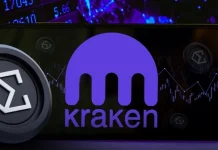
- Hong Kong’s Stablecoin Ordinance restricts stablecoin derivative use under new anti-money laundering regulations.
- DBS Hong Kong will shift its focus to building ecosystem support for stablecoin issuers and users.
- Regulators caution against unlicensed stablecoins, stressing risks amid global interest and Chinese policy pressures.
The stablecoin market in Hong Kong is undergoing a major shift as regulators tighten controls to reduce money laundering and speculative risks. With the Stablecoin Ordinance taking effect on August 1, banks and crypto service providers are now preparing for stricter oversight.
These new rules will significantly limit how stablecoins are used for derivative trading, according to DBS Hong Kong’s chief executive, Sebastian Paredes. The decision reflects Hong Kong’s broader ambition to balance innovation with regulatory responsibility, while still trying to position itself as a leading hub for digital finance.
Hong Kong’s New Stablecoin Rules Reshape the Future of Derivatives and Trading Practices
Paredes explained at a financial conference that tighter anti-money laundering standards mean stablecoin-based derivatives will no longer enjoy the same operational flexibility as before, forcing institutions to adjust their approach. He added that DBS Hong Kong would instead concentrate on strengthening its role within the stablecoin ecosystem by working with issuers and users directly. The Hong Kong Monetary Authority is expected to publish a licensing list next year, providing clarity on which firms can operate legally under the framework.
Drawing from DBS’s experience in Singapore, Paredes highlighted that regulated platforms can still support a range of digital assets, from cryptocurrencies and tokenized bonds to structured financial products. He noted that stablecoins remain vital in global finance, particularly for trade settlements and cross-border payments, despite the new constraints. By framing these assets as long-term tools rather than speculative instruments, banks like DBS hope to align regulatory compliance with commercial growth opportunities.
Banking Leaders Emphasize Opportunities But Warn Stablecoin Adoption is Still at an Early Stage
Hang Seng Bank’s outgoing CEO, Diana Cesar, agreed that regulators had taken an important step by drafting clear stablecoin rules, even though adoption remains relatively young. She stressed that the use of wholesale Stablecoin which requires large-scale institutional and corporate payments, comes with different implications compared to retail use by individual investors. For households and small businesses, she argued, the risks tied to price stability, liquidity, and regulation require more cautious handling.
Cesar also addressed technology’s dual role in the financial system, acknowledging how automation, blockchain, and artificial intelligence improve speed and efficiency while also presenting new vulnerabilities. She stressed that banking relies on public trust, making data privacy and responsible adoption of technology as important as profit-driven innovation. In her view, regulators must carefully weigh these risks while still allowing room for digital asset frameworks to develop.
Regulators Warn Investors as Regional Pressures Add Complexity to Hong Kong’s Stablecoin Market
Even with Hong Kong’s proactive measures, there are still unresolved challenges to issuing stablecoin rules with surrounding markets. Speculation on political pressures causing market retreats have circulated with recently reported discouragement of stablecoin seminars or research by Chinese authorities with mainland firms. Market uncertainty has also been amplified with rumors of HSBC and ICBC snapping up stablecoin research licenses, license applications and dropping research with speculation on research intent either way.
The Hong Kong Monetary Authority recently addressed social media claims about a Yuan-backed stablecoin, warning investors that no such product has been licensed or approved in the city. Officials stressed that issuing or promoting unlicensed stablecoins would be treated as illegal, reinforcing their determination to maintain credibility in the financial system. This announcement followed heightened concerns over fraud after speculative companies tried to capitalize on the new framework without regulatory approval.
The added measures also signal an intent to keep speculation within manageable limits. On the world exchange, Hong Kong is set to continue the bridging with digital finance. DBS is an example of the caution shown, supporting their compliance to innovation. The same is provided for investors. The same holds for investors. The same holds for investors and for businesses.



